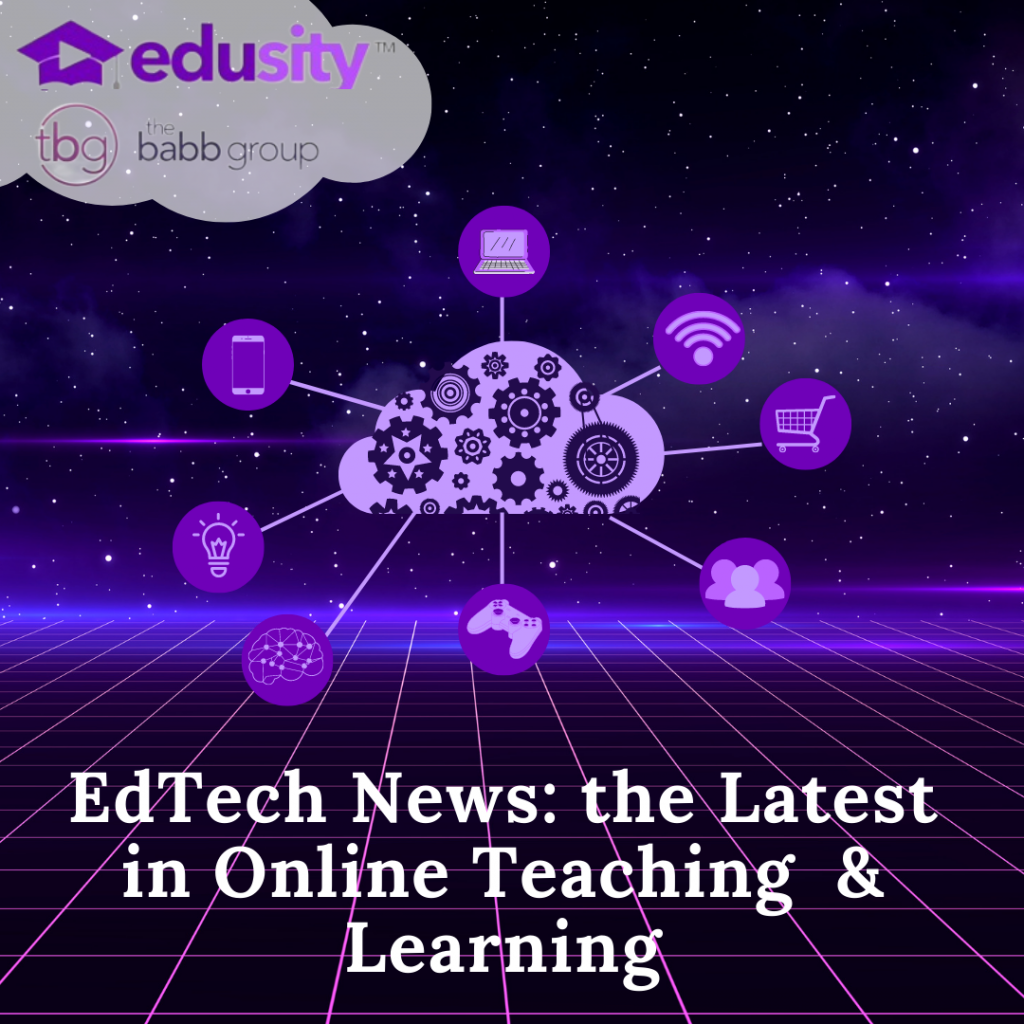EdTech News is a new feature from the Edusity family of companies that highlights recent developments and issues in the industry (and adjacent industries) that will impact online teaching and learning. Published weekly, the feature is meant to support students, faculty and administrators as they navigate changes to tools and techniques as the tech we use evolves.
Designing digital products that are ethical could bring EdTech companies a competitive edge. That’s the thinking behind the Digital Ethics Compass, a project of the Danish Design Centre. The compass is a tool and learning program that supports companies as they build an ethical foundation for their future financial growth.
The hands-on practical learning program supports companies working and developing ethical products and services. Businesses work with practical issues, exercises, and challenges and learn how to navigate the dilemmas of the digital world like data, algorithms, and nudging.
More info: https://ddc.dk/projects/the-digital-ethics-compass/
Safeguarding and improving the mental health of children is a challenge everyone must take up. The MIT Media Lab has launched Paradise Island to do just that. Paradise Island is a mobile game that asks players to build up their mental health skills by sending them on their own real-life adventures in exchange for in-game rewards.
Paradise Island is a sequel to the 2020 release Unite the Realms. That game increased long term retention rates to a behavioral activation therapy regimen by over 2.5 times compared to the top mental health apps of the time. Players reported that over 80% of the daily real-life adventures actively helped them improve their mood.
More info: https://guardians.media.mit.edu/
Hybrid is the model NACAC has adopted for its conference in Houston next week. There will be both online and in-person opportunities for professionals to earn continuing education credits during the event from 22 to 24 September. The National Association for College Admission Counseling (NACAC) is an organization of thousands of professionals from around the world who serve students as they make choices about postsecondary education.
Micro-credentials a new tool for proving competency after a rapid skilling or re-skilling course. They help job-seekers find new positions and ensure that workers don’t let their skills become obsolete. They are also a challenge to the traditional higher ed business model and the idea of obtaining a broad general education during a set period of one’s life. The personal costs might just be too high, and the demands of the economy for workers are just too great.
Thanks to work in the European Community, the global community is starting to get an idea of just what micro-credentials are and how they work for students and the economy.
More info: https://www.thebabbgroup.com/blog/instructional-design/designing-micro-credentials-what-every-higher-ed-administrator-needs-to-know
Interested in having your news covered in the EdTech News? Send your press releases to kate@edusity.com
Latest posts by Kate Baggott (see all)
- The EdTech News for Friday, March 17, 2023: AI Supports Reading Development, Educators Detect AI-Generated School Work - March 17, 2023
- The EdTech News for Friday, March 10. 2023: Families Coding, Mindsets Changing, and Edusity is Educating - March 11, 2023
- The Hiring Manager: Human or Bot? Job Seekers Need to Know - March 9, 2023
